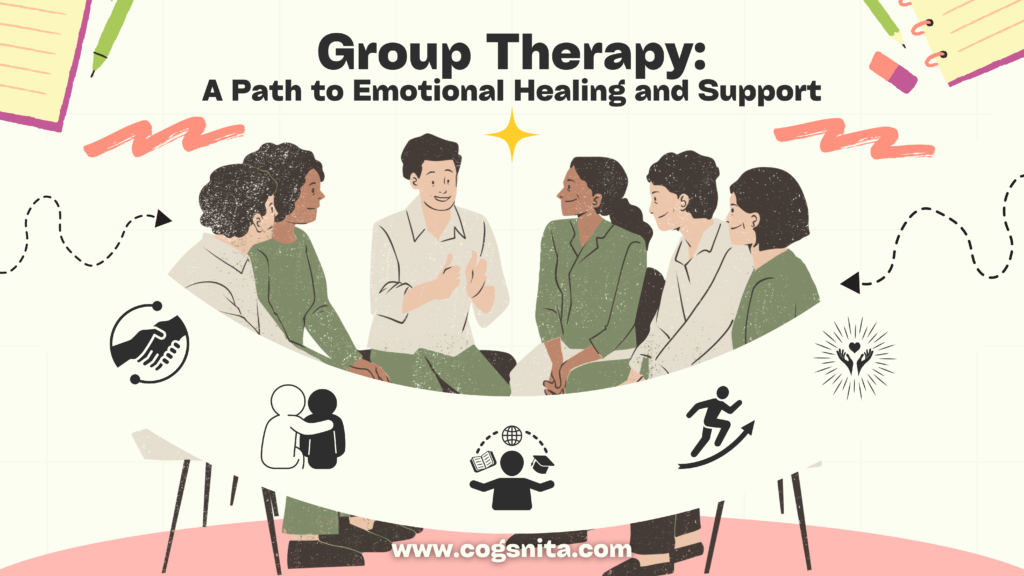Table of Contents
Group therapy is a form of psychotherapy that involves one or more therapists working with a small group of people at the same time. It is a powerful tool that has been used for decades to help individuals confront and manage their emotions, build healthier relationships, and heal from trauma. If you’re someone considering therapy but feel apprehensive about individual sessions, group therapy could offer a supportive and safe space for healing.
In this blog post, we’ll explore the numerous benefits of group therapy, highlighting why it can be a transformative experience for those looking to improve their mental health and overall well-being.
A Sense of Belonging
One of the most profound benefits of group therapy is the feeling of connection. Often, people feel isolated when dealing with their struggles, especially with mental health issues such as anxiety, depression, or addiction. In a group therapy setting, you are surrounded by individuals who are facing similar challenges. This sense of shared experience fosters a deep feeling of belonging, making it easier to open up and be vulnerable without the fear of being judged.
The realization that you’re not alone in your struggles can be incredibly freeing. It helps reduce feelings of isolation and creates a supportive community where people learn that others understand what they’re going through.
Learning from Others
Another major advantage of group therapy is the opportunity to learn from others. Each person in the group brings their own experiences, insights, and coping mechanisms to the table. As you share your journey, you also get to hear about the strategies others are using to manage their emotions or overcome difficulties.
This exchange of ideas can be eye-opening. You might discover new techniques for managing stress or gain fresh perspectives on how to approach a challenging situation. Additionally, the group dynamics allow participants to practice active listening, empathy, and compassion — skills that are invaluable in both personal and professional relationships.
Improving Social Skills
Group therapy is not just about healing emotionally; it can also improve your social skills. In a controlled, safe environment, individuals can work on their interpersonal communication, build trust, and strengthen their ability to interact with others in a healthy way.
For people who struggle with social anxiety or find it difficult to open up in one-on-one settings, group therapy provides an opportunity to practice speaking and listening in a supportive space. With time, this can lead to increased confidence and better social interactions outside of therapy.
Cost-Effectiveness
One of the practical benefits of group therapy is that it tends to be more affordable than individual therapy sessions. Because the therapist’s time is divided among several participants, the cost per individual is generally lower. This can make therapy more accessible for people who might not otherwise be able to afford private sessions.
For individuals who might not have a large budget but still want to benefit from therapeutic support, group therapy provides an excellent solution. It allows people to receive professional guidance while still being able to manage costs.
Real-Time Feedback and Support
In group therapy, members can provide each other with feedback in real-time. This dynamic is highly beneficial because it allows individuals to hear from others who may have faced similar challenges. Group members can offer suggestions, share personal experiences, or simply provide encouragement.
This immediate feedback is a key advantage over other forms of therapy, where feedback might be delayed. The shared sense of progress and support boosts motivation, helping people stay committed to their healing journey.
Developing Empathy
Empathy is one of the most important skills that group therapy helps to develop. As you hear others speak about their struggles, you begin to understand the complex emotions behind their actions and behaviors. You learn to put yourself in their shoes and see the world from their perspective.
This increased understanding of others’ emotions fosters greater compassion, both within the group and in other relationships outside of therapy. Over time, this empathetic attitude can lead to improved connections with family, friends, and colleagues.
Accountability
Being part of a group creates a built-in system of accountability. In individual therapy, the responsibility for following through on the work often rests entirely with the individual. However, in group therapy, there is an inherent sense of responsibility toward the other group members.
Knowing that you’ll be sharing your progress or challenges in the next session can motivate you to take action, continue working on your goals, and remain engaged in the process. This accountability can make a significant difference in achieving long-term success and healing.

Conclusion
Group therapy offers a unique approach to healing that blends support, learning, and personal growth. It provides a space for individuals to connect with others who share similar struggles, practice new social skills, and receive real-time feedback in a supportive environment. Additionally, it can be a cost-effective alternative to individual therapy, making it accessible to a wider range of people.
Ultimately, the benefits of group therapy are vast. It encourages emotional healing, fosters empathy, and builds a sense of belonging. If you’re considering therapy but feel uncertain about embarking on the journey alone, group therapy may be the right choice for you.
Resources
For more information on group therapy and how it can help, check out these helpful resources:
- American Psychological Association on Group Therapy
- National Institute of Mental Health: Therapy Options
- Cogsnita: Mind Gym Resources
Remember, you’re not alone on your healing journey, and group therapy might just be the support system you need to thrive.
